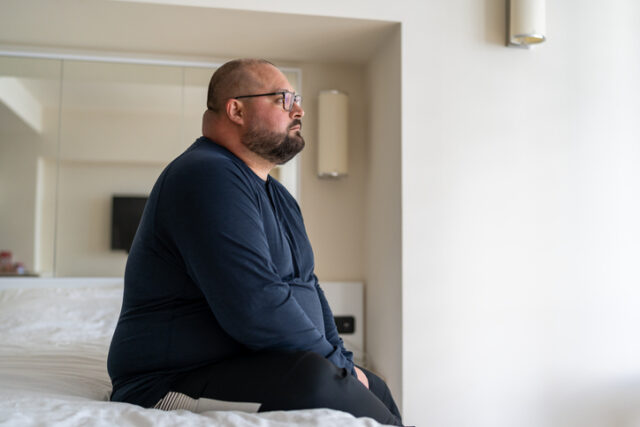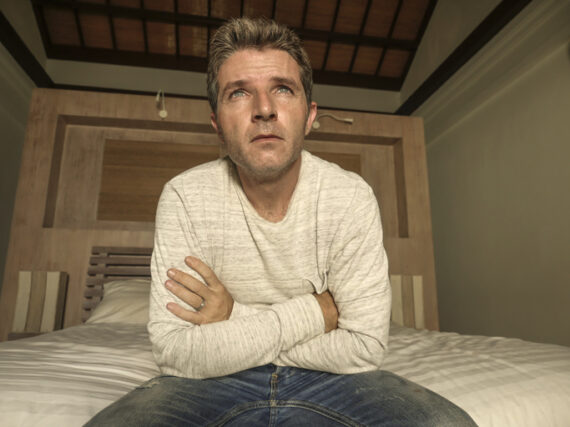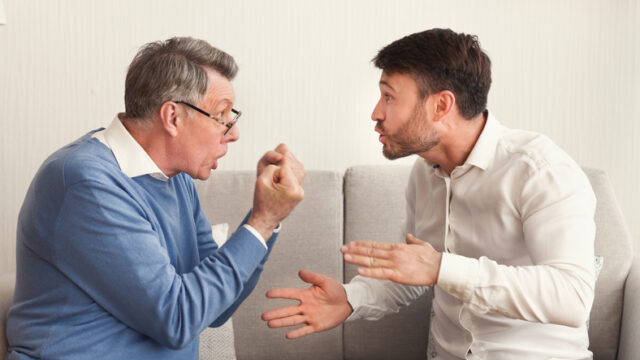Sometimes it happens slowly, without you even noticing.

One day, you’re answering messages without thinking twice, and then you’re putting off replies for no clear reason. You start craving quiet over connection, but not necessarily in a peaceful way. Pulling away from the world doesn’t always feel dramatic—it often shows up in subtle changes that are easy to overlook until they start to shape your everyday life. If these things sound familiar to you, you may be isolating yourself a bit too much.
1. You stop reaching out, even to people you genuinely care about.

It’s not that you suddenly dislike anyone—it’s just that initiating feels heavier than it used to. Texting back takes longer, making plans feels like a chore, and you convince yourself that everyone’s probably fine without hearing from you anyway. As time goes on, the silence stretches. You still think of people fondly, but something inside you feels like staying back is safer, or at least simpler. That pull toward distance becomes harder to explain.
2. You start screening calls, even from your closest people.

Phone calls begin to feel like an interruption rather than connection. You watch your phone light up and talk yourself out of picking it up—not because you’re angry or upset, but because you don’t have the energy to be “on.” Even when it’s someone you love, it can feel overwhelming to engage. So you let it ring, tell yourself you’ll call back later, and then quietly dread the idea of having to explain why you didn’t.
3. Your messages get shorter, or disappear altogether.

Conversations that used to flow easily now feel like effort. You find yourself responding with one-word replies or avoiding certain chats altogether. It’s not personal, even though it feels that way from the outside. You’re still present in your head, but your energy for interaction has dipped. Even though you miss connection, part of you just wants to be left alone.
4. You cancel plans last-minute or secretly hope they fall through.

You agree to hang out with the best of intentions, but when the day comes, you don’t feel up for it. You start crafting excuses, or you feel relief when the other person has to cancel first. It doesn’t mean that you dislike the people you’re avoiding—it’s more that you feel like you can show up fully. Social energy feels like something you used to have in abundance, but now it’s in short supply.
5. You scroll through social media, but it just makes you feel more detached.

You’re still technically plugged in—you scroll, you watch stories, you see what everyone’s doing—but none of it feels like connection. It feels like watching the world from behind glass. The more you scroll, the more distant you feel. It doesn’t inspire or uplift—it just reinforces the sense that you’re on the outside looking in, unsure how to step back into the flow.
6. You stop sharing your thoughts, even with people who usually get it.

Where you once opened up naturally, now you keep things to yourself. You feel like explaining would take too much effort—or worse, you’re not sure your feelings would even make sense to someone else. You don’t want to be a burden or sound dramatic. So you stay quiet, even when you’re aching to be understood. The more you stay silent, the harder it becomes to speak.
7. You start feeling indifferent about things that used to matter.

Excitement turns into “meh.” Events that used to bring joy or anticipation now feel like background noise. Even basic things like replying to an email or making dinner feel oddly distant from you. You’re not necessarily sad; you’re just disconnected. It’s like life is happening in front of you, but you can’t seem to feel present in it the way you used to.
8. You convince yourself that you’re “just tired”—all the time.

You chalk everything up to exhaustion. You’re not avoiding people, you’re just resting. You’re not retreating, you’re recharging. While sometimes that’s true, it becomes your default answer to everything. Deep down, you know it’s more than tiredness, but admitting that feels like opening a door you’re not ready to walk through. So, you keep saying it and hope the rest sorts itself out.
9. You get more sensitive to noise, interruptions, or unexpected plans.

Things that never used to bother you now feel overstimulating. A sudden call, a loud room, or a change in schedule throws you off more than it should. Your tolerance shrinks, and you start craving more control over your space. It’s your nervous system asking for stillness, but when even small things start to feel like too much, it’s often a sign that you’re quietly disconnecting in ways that go beyond needing quiet.
10. You stop dressing for the day—you just exist in autopilot mode.

You throw on whatever’s closest. You skip your routines, not because you’re being casual, but because the motivation to care feels low. Getting ready used to help you feel grounded, but now it feels like effort you can’t justify. It’s not about appearance; it’s about presence. When you’re pulling away from the world, even those small rituals that used to anchor you start to fade.
11. You lose interest in making decisions, even small ones.

Choosing what to eat, what to watch, or what to do with your time feels harder than it should. You avoid making choices, not because you don’t care, but because your brain just doesn’t want to engage. That mental fog more than laziness—it’s emotional withdrawal. When everything starts to feel like a task, it’s often a reflection of how emotionally depleted you’ve become.
12. You stop noticing how much time has passed.

Days blur into each other. You look up and realise you haven’t spoken to anyone in a while, or that you haven’t stepped outside all day. Time moves, but you feel strangely still. It’s a quiet kind of detachment that creeps in when you’re emotionally checked out. And while part of you knows you should reconnect, the pull to stay distant often feels stronger than the urge to come back.




